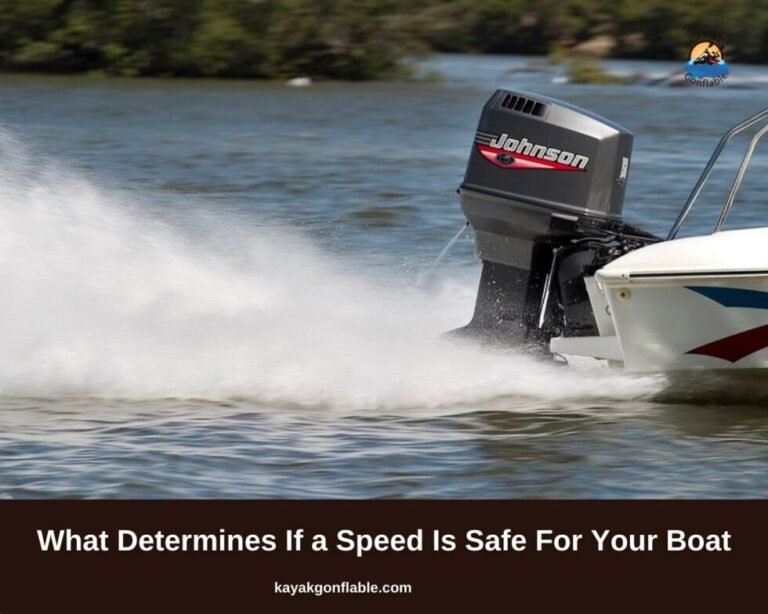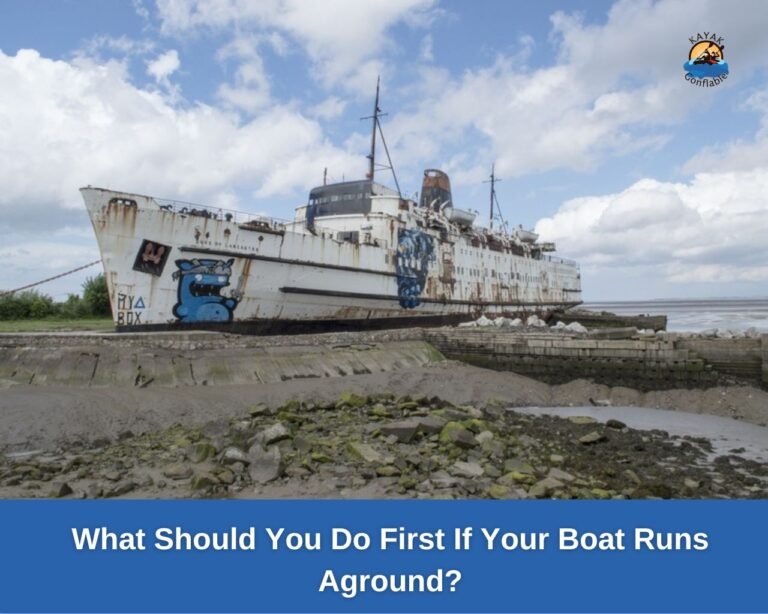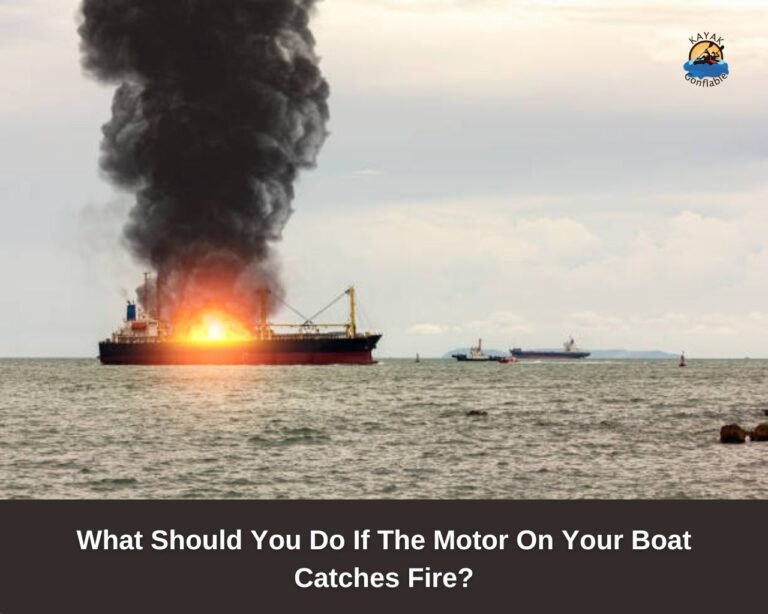How Does Noise And Vibration Affect You When Operating A Boat?

Noise and vibration are two of the most common sources of boat-related discomfort. They can have a significant impact on the health and safety of both boat operators and passengers. They can cause fatigue, stress, and even hearing damage.
Too much noise or vibration can damage the boat and its engine, create safety issues for passengers, and even cause hearing loss. If you’re concerned about the noise or vibration levels your boat is producing, it’s important to take steps to reduce them.
Here we will discuss the sources of noise and vibration in boats, how they affect you, and some tips for mitigating their effects.
Types of noise and vibration you may experience in a boat
Boat noise and vibration can be a result of the engine, the water, or the boat itself. Some noises and vibrations are more common than others and can vary depending on the type of boat. Knowing what to expect can help you prepare for it and deal with any issues that may arise.
Boating can be a great experience, but it can also be quite noisy and vibration-prone. Here are some of the most common types of noise and vibration you may experience:
Noise and vibration can be a nuisance on a boat, especially when they’re constant. Here are some types of noise and vibration you may experience:
- Motor or engine noise: Boats use engines to move through water, and they can be quite noisy. In particular, outboard motors can generate a lot of “thumping” noise.
- Water sloshing;
- Propeller blade noise;
- Pumps and fans;
- Wind noise.
- Bow thruster noise.
- Wind noise, and
- Boat shakes.
How To Protect Yourself From The Effects Of Noise And Vibration When Operating A Boat
Operating a boat can be a lot of fun, but it’s important to be aware of the potential dangers that come with the activity.
One such danger is noise and vibration, which can affect both your enjoyment of the experience and your safety. Noises from engines, propellers, and outboard motors can cause both ears to ring for hours after leaving port.
Vibrations from engines, waves, and other boats can cause nausea and headaches in even the most seasoned boater. Here are a few tips on how to protect from noise and vibration while boating:
- Make sure your boat is in good working condition and use a cushion when sitting in the captain’s chair. This will reduce the vibrations you experience.
- Wear noise-canceling headphones or earplugs to reduce the amount of noise that you hear. This is the easiest way to protect your ears from the noise of the boat engine. This will help to muffle any loud noises that might otherwise damage your ears.
- Stay away from the engine. The closer you are to the engine, the more noise and vibration you’ll be exposed to. If you can’t avoid being near the engine, try to stay as far away from it as possible.
- Use a good quality boat cushioning system to add some extra insulation to your boat. Adding insulation will help to dampen the sound and vibration that is caused by the engine and the waves. You can also install shock absorbers to reduce the amount of vibration that you feel. If you have a fiberglass boat, you can add some extra padding to the hull to absorb the sound and vibration. This will help to absorb some of the shockwaves that can cause pain and discomfort.
- Avoid boating during peak traffic times. During peak traffic times, more boats are on the water and this consequently increases the noise level. Try to ride in a group as much as possible. This will help to keep the noise and vibration level low for everyone on board.
- Sit on the edge of the boat. Sitting on the edge of the boat will help absorb some of the vibrations and make them less likely to travel up your body.
Always wear a life jacket for your safety. You should also take proper care of yourself and drink plenty of water.
Effects Of Noise And Vibration On The Body
Noise and vibration can both have negative effects on the body, leading to fatigue, stress, and even health problems. Noise and vibration can cause numerous health problems for people, both in the short term and long term.
In the short term, they can cause headaches, fatigue, and disrupted sleep. In the long term, they can lead to chronic conditions like hearing loss and cancer. Here are five ways noise and vibration can affect you:
- They can cause headaches and other types of pain.
- They can disrupt sleep patterns.
- They can increase the risk of developing chronic conditions such as cancer.
- They can lead to decreased concentration.
- They can cause hearing loss and other types of damage to your body. According to the American Institute of Stress, noise can cause headaches, stress, tinnitus (a disorder that causes ringing in the ears), nausea, anxiety, and depression.
Tips on how to reduce noise and vibration produced by your boat
When boating, it is important to be aware of the noise and vibration that you are creating. By following a few simple tips, you can ensure that your experience on the water is as enjoyable as possible.
- Make sure that your boat is in good condition. A vessel that is not in good condition will create more noise and vibration.
- Follow the manufacturer’s recommendations for operating your boat.
- Operate the engine at a moderate operating temperature.
- Make use of equipment that can reduce noise and vibration in your boat.
In conclusion, it is important to be aware of the dangers of noise and vibration while operating a boat. Not only can these dangers cause physical harm, but they can also lead to accidents.
By being aware of these dangers and taking the necessary precautions, boaters can help ensure their safety and the safety of those around them.
Remember to always use caution when on the water and never operate a boat while under the influence of alcohol or drugs. I hope this helps you stay safe on the water, and I wish you many safe boating adventures!
Frequently Asked Questions
Can boats vibrate at low speed?
There is a misconception that boats cannot vibrate at slow speeds because of the way they are built. In actuality, boats can vibrate at low speeds just like cars and trucks. The main difference is that boats have more moving parts that can cause more vibration.
These vibrations can be caused by a variety of factors, including the movement of water and air, the motion of the boat itself, and the use of propulsion engines.
Wave action also creates vibrations, and wind causes boats to move around constantly. While vibrations at low speeds are not typically a problem, they can be detrimental if they are frequent or severe.
What to do if a nearby boat makes too much noise?
If you’re out on the water and a boat comes too close for comfort, blasting music or making too much noise, there are a few things you can do.
You can try to get the captain’s attention by yelling or using a whistle. If that doesn’t work, you can try to move away from the boat or even take evasive action. If all else fails, you can record the boat’s license plate number and report it to the Coast Guard.
If you’re a boat owner living near a busy marina or harbor, you know that some boats make more noise than others.
If you’re unlucky enough to live near one of these noisemakers, on occasion the noise is so loud that it’s difficult to sleep or enjoy your time on the water. There are a few things you can do if this is happening to you.
First, talk to the person and see if they can be more mindful of their behavior. If that doesn’t work, consider moving away from the area or taking steps to make the boat less noisy.
Do noise and vibrations in boats chase fish away?
Although it is still unclear whether or not noise and vibrations from boats chase fish away, many fishermen believe that this is the case.
There are several reasons why this could be the case. One reason is that when a boat creates noise and vibrations, it disturbs the water’s surface. This in turn can make it difficult for the fish to find food and hide from predators.
Additionally, when a boat travels through water, it creates turbulence which can force the fish out of their hiding places.
All in all, it is difficult to concretely say whether or not noise and vibration affect fish. Some scientists suggest that the sounds may simply make fish feel uncomfortable.
The most important thing however is that you take steps to protect yourself from the effects of noise and vibration.
What equipment can reduce noise and vibration for boaters
Noise and vibration can be a problem for boaters, especially when it comes to fishing. Some pieces of equipment can help reduce noise and vibration, making the experience more enjoyable.
One option is a trolling motor. This motor attaches to the back of the boat and helps propel it through the water. Trolling motors come in different sizes, so it is important to choose one that is appropriate for your boat.
Another option is a fish finder. This device sends out sonar waves that allow you to see what is underwater. This can be helpful when trying to locate fish or other objects in the water. A third option is an anti-vibration mount.
This mount attaches to the underside of your boat and helps absorb any vibration from the engine. This can be helpful when fishing in choppy waters or when using a trolling motor.






